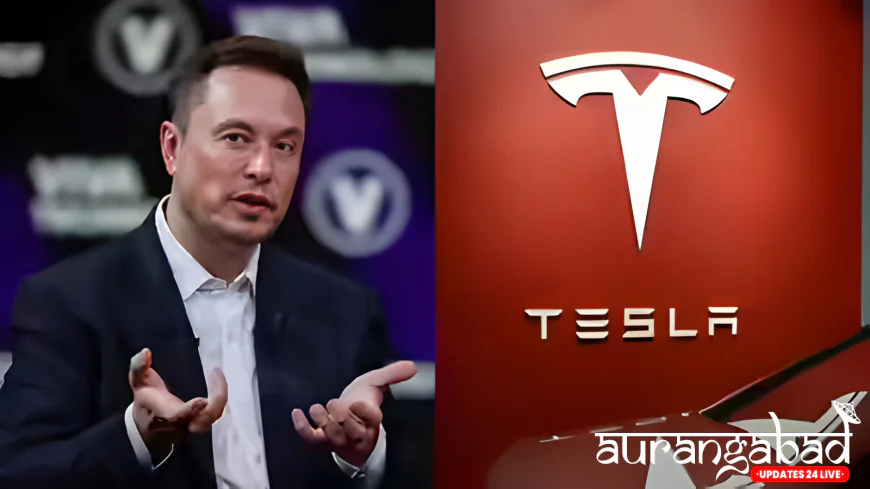Elon Musk's Strategic Pivot: Tesla to Enter UK Energy Market Amid Plunging Car Sales
As Tesla's electric vehicle sales face a significant decline in the UK and across Europe, Elon Musk's company is making a bold strategic move to enter the British electricity market. This article explores Tesla's new energy venture, its potential to disrupt traditional suppliers, and the factors behind the company's recent sales slump, revealing a critical shift in its business strategy.

Elon Musk, the charismatic and often controversial CEO of Tesla, is embarking on a new and ambitious venture in the United Kingdom. As his company grapples with a steep decline in electric vehicle (EV) sales across key European markets, Tesla has formally applied to become a direct electricity supplier to British homes. This strategic pivot, while seemingly disparate from its automotive roots, is a calculated move to diversify the company's revenue streams and solidify its position as a holistic energy and technology powerhouse. The decision to challenge established energy giants comes at a time when Tesla's automotive division is under immense pressure, forcing the company to seek new avenues for growth and profitability.
The UK Energy Gambit: A New Frontier for Tesla
Through its subsidiary, Tesla Energy Ventures, the company has submitted an application to Ofgem, the UK's energy regulator, seeking a license to supply electricity to both residential and commercial premises. This is not Tesla's first foray into the energy sector; the company has successfully operated a similar model, "Tesla Electric," in Texas, where it offers customers cheaper EV charging and rewards them for feeding surplus energy back into the grid.
Tesla's plan for the UK market is to create a seamlessly integrated energy ecosystem for consumers. This model would leverage its existing suite of energy products, including solar panels and the highly successful Powerwall battery storage systems. The vision is to empower homeowners to generate their own clean energy, store it efficiently, and use it to power their homes and charge their electric vehicles. By becoming a direct supplier, Tesla can cut out the middleman, offering what it hopes will be competitively priced electricity and a unified, tech-driven user experience.
This integrated approach could be a game-changer. It promises not only to make energy consumption more efficient but also to enable the creation of "virtual power plants" where thousands of networked Powerwalls can collectively stabilize the grid during periods of high demand. For the UK, which is striving to meet ambitious decarbonization targets, Tesla’s entry could be a significant accelerant in the shift toward renewable energy adoption.
The Plunge in EV Sales: A Catalyst for Change
Tesla's push into the UK energy market is not occurring in a vacuum. It is a direct response to a challenging period for the company’s automotive division. Recent data from the Society of Motor Manufacturers and Traders (SMMT) revealed a staggering sales decline of nearly 60% in the UK in July, compared to the same period last year. This downturn is not an isolated event but rather part of a broader slump across Europe, where sales figures have fallen by over 40% in the first half of the year.
Several factors have contributed to this sudden reversal of fortune for the one-time EV market leader.
-
Intensifying Competition: The EV market is no longer Tesla's exclusive domain. Legacy automakers and new entrants from China, most notably BYD, have flooded the market with a diverse range of models at competitive price points. In the UK, BYD's sales surged by nearly 400% in July, directly challenging Tesla's once-dominant market share.
-
Economic Headwinds: Rising interest rates and the gradual phasing out of government subsidies for EVs have made electric cars less affordable for many consumers, dampening overall demand.
-
Brand Perception and Controversies: Elon Musk’s highly public and often divisive political stances and social media activity have alienated a segment of buyers, particularly in socially liberal European markets. This "brand damage," as analysts have called it, has undoubtedly played a role in the softening demand for Tesla vehicles.
A Strategic Pivot: From Car Maker to Energy Powerhouse
For Musk, the move into energy supply is a strategic masterstroke designed to address these challenges. By diversifying into a new, stable, and recurring revenue stream, Tesla can reduce its dependence on the highly volatile EV market. It’s a move that aligns with Musk’s long-standing vision of creating a fully integrated, sustainable energy ecosystem.
The company's core competency lies in battery technology, which powers both its cars and its energy storage solutions. By leveraging this technology to sell electricity, Tesla can create a symbiotic relationship between its products. A customer who buys a Powerwall is a potential electricity subscriber. An electricity subscriber is a potential EV buyer. This creates a powerful flywheel effect that could sustain the company's growth even as car sales fluctuate. If the UK venture proves successful, it could serve as a blueprint for global expansion, transforming Tesla into a true energy titan.
While the move presents significant opportunities, there are challenges ahead. The regulatory process with Ofgem can be lengthy, taking up to nine months for a decision. Furthermore, Tesla will be competing with established and trusted energy providers who have a deep understanding of the market. However, with its strong brand recognition and innovative technology, Tesla is well-positioned to shake up the UK's energy landscape and offer consumers a compelling new choice.
















































